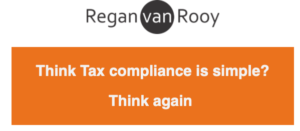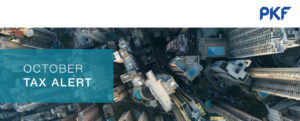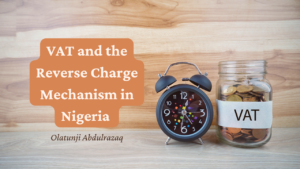Another article about this case is available here – http://taxriskmanagement.com/sca-judgment-on-sars-conduct/
In the case of CSARS v Pretoria East Motors Pty Ltd, (291/12) [2014] ZASCA 91 (12 June 2014) the court sought to look at certain principles from the Income Tax Act 58 of 1962 and the VAT Act 89 of 1991 regarding an appeal against the dismissal of the objection by the taxpayer, assessment of additional income tax and VAT, the onus of proof, evidence and sufficiency of the taxpayer to discharge the onus of proof. In its appeal, SARS sought to have the case re-determined with regard to the following issues: input tax on the purchase of second hand vehicles, fuel coupons, and parking rentals. On its part, Pretoria East Motors had a cross-appeal seeking the court to review the difference between the VAT reports and VAT 201 returns liability, the difference between output and turnover liability, the zero percent VAT amounts, and the VAT and income tax liability on sales at no consideration. Other issues included an incentive bonus liability, discount and over-allowance liability, journals at year end added back, stock liability, accrued expenses and provision account liability, expenses liability, salaries and wages, and penalties at 200 percent.
However, of great significance is the first 15 paragraphs of the judgment pertaining to the conduct of SARS in an audit, the process following the revised assessments, and in relation to the preponderance of evidence on the part of the taxpayer. Key extracts are quoted as follows:
At [6] “…The present appeal must therefore be approached on the basis that the onus was on the taxpayer to show on a preponderance of probability that the decisions of SARS against which it appealed were wrong (CIR v SA Mutual Unit Trust Management Co Ltd 1990 (4) SA 529 (A) at 538D). That, however, is not to suggest that SARS was free to simply adopt a supine attitude. It was bound before the appeal to set out the grounds for the disputed assessments and the taxpayer was obliged to respond with the grounds of appeal and these delineate the disputes between the parties.”
At [8] “It is so that the taxpayer’s ipse dixit will not lightly be regarded as decisive. But it must be considered together with all of the other evidence in the case. And, given the unfavourable position of having the onus resting upon it – a ‘formidable and difficult’ one to discharge (per Trollip JA; Barnato Holdings Ltd v Secretary for Inland Revenue 1978 (2) SA 440 (A) at 454A-B) – the interests of justice require that the taxpayer’s evidenceand questions of its credibility be considered with great care. Indeed the taxpayer’s evidence under oath and that of its witnesses must necessarily be given full consideration by the court, and the credibility of the witnesses must be assessed as in any other case that comes before the court. (See Malan v Kommissaris vir Binnelandse Inkomste 1983 (3) SA 1 (A) at 18E.) It thus remains the function of the court to make a determination of the issues that arise for decision on an objective review of all of the relevant facts and circumstances. Not the least important of the facts, according to Miller J (ITC 1185 (1972) 35 SATC 122 (N) at 124), ‘will be the course of conduct of the taxpayer in relation to the transactions in issue, the nature of his business or occupation and the frequency or otherwise of his past involvement or participation in similar transactions. The facts in regard to those matters will form an important part of the material from which the court will draw its own inferences against the background of the general human and business probabilities’.”
At [9] “…The approach adopted by Ms Victor was to examine the accounts and, where she found a discrepancy that she did not understand and for which in her view no adequate explanation was furnished, she raised an assessment to additional tax – either income tax or VAT or, in some instances, both.”
At [10] “It does not appear that Ms Victor sought to familiarise herself with the workings of the accounting system utilised by the taxpayer, even though the information available to her, confirmed by the evidence in the appeal, was that it was a customised system installed…Ms Victor ignored the internal character of these transactions. Thus she treated as taxable supplies: the transfer of vehicles from sales stock to demonstration purposes; sales clearly reflected in the accounts as internal transactions; and, the transfer of sales stock (swaps) between the two branches of the business. This was incorrect, as it ignored the fact that under s 7(1)(a) of the VAT Act, read with the definition of ‘supply’ in s 1, output tax is to be raised only on taxable supplies by a vendor and these internal activities did not constitute supplies to anyone.”
At [11] “As best as can be discerned, Ms Victor’s approach was that if she did not understand something she was free to raise an additional assessment and leave it to the taxpayer to prove in due course at the hearing before the Tax Court that she was wrong. Her approach was fallacious. The raising of an additional assessment must be based on proper grounds for believing that, in the case of VAT, there has been an under declaration of supplies and hence of output tax, or an unjustified deduction of input tax. In the case of income tax it must be based on proper grounds for believing that there is undeclared income or a claim for a deduction or allowance that is unjustified. It is only in this way that SARS can engage the taxpayer in an administratively fair manner, as it is obliged to do. It is also the only basis upon which it can, as it must, provide grounds for raising the assessment to which the taxpayer must then respond by demonstrating that the assessment is wrong. This erroneous approach led to an inability on Ms Victor’s part to explain the basis for some of the additional assessments and an inability in some instances to produce the source of some of the figures she had used in making the assessments. In addition, as a matter of routine, all the additional assessments raised by her were subject to penalties at the maximum rate of 200 per cent, absent any explanation as to why the taxpayer’s conduct was said to be dishonest or directed at the evasion of tax.”
At [12] “…Ms Victor was invited to take whatever she needed, but she declined to do so. The SARS auditors had thus been given access to all the documents foundational to the taxpayer’s accounts but chose not to examine any of them. This disturbing approach persisted in the Tax Court.”
At [14] “In these circumstances the submissions made to the Tax Court and repeated on appeal in relation to many of the disputed items, namely that the original vouchers had not been produced or that Dr Gouws’ explanations were to be ignored because they were based on hearsay, cannot be sustained. Whilst there are disputes in tax appeals, such as the entertainment expenditure in the present appeal, where the production of invoices or vouchers is called for if the taxpayer is to discharge the onus of proof resting on it, that is not always the case. Everything will depend upon the nature of the dispute between the parties as defined by the grounds of assessment and the grounds of appeal. Where, for example, the SARS auditor has based an assessment upon the taxpayer’s accounts and records, but has misconstrued them, then it is sufficient for the taxpayer to explain the nature of the misconception, point out the flaws in the analysis and explain how those records and accounts should be properly understood. That can be done by a witness such as Dr Gouws who, as a qualified chartered accountant, is capable of giving such an explanation after a full and proper consideration of the accounts. If there are underlying facts in support of that explanation that SARS wishes to place in dispute, then it should indicate clearly what those facts are so that the taxpayer is alerted to the need to call direct evidence on those matters.Any other approach would make litigation in the Tax Court unmanageable, as the taxpayer would be left in the dark as to the level of detail required of it in the presentation of its case. It must be stressed that SARS is under an obligation throughout the assessment process leading up to the appeal and the appeal itself to indicate clearly what matters and which documents are in dispute so that the taxpayer knows what is needed to present its case.”
In its judgment, the court determined that SARS’ decision to disallow input tax deduction solely on the basis that the taxpayer did not possess any declaration by the supplier that stated whether the supply was taxable or not could not stand. That was because it was an extra requirement to that of sufficient records as required by section 16(2) (c) of the Act. The appeal, therefore, failed. On the second ground of fuel coupons, the court held that the Commissioner could not disallow the deduction, as the taxpayer was able to produce some vouchers duly signed as per the practice of the company to prove the allowable expenditure. The taxpayer was also able to prove that the petrol attendants continually reconcile the journal entries on a daily basis and that SARS’ auditor failed to go through these documents. On the issue of parking rentals, the court held that SARS’ appeal against the earlier judgment succeeded as the taxpayer failed to discharge the onus of proof. The issue of contention was just the cash component, and since the taxpayer could not provide sufficient evidence, the appeal stood. SARS would thus carry out further investigation and assessment of the issue. SARS, therefore, succeeded only in the last ground but had the first two grounds dismissed.
About the taxpayer’s cross-appeal, the court held that with regard to the first and second ground, the taxpayer’s cross-appeal succeeds. That is because the court found that SARS’ auditor used gross figures when calculating the taxable income. She failed to take into consideration allowable deductions such as internal sales, swaps between branches and exempt supplies. That led to different VAT liability figure. On zero percent VAT amounts, the court held that output VAT could only accrue if the vendor supplies a commodity that furthers the taxpayer’s enterprise. SARS should therefore not regard reallocation of assets as sales since this is an internal transaction. The court therefore upheld the cross-appeal. The court also held that the cross-appeal in relation to sales at no consideration was to be upheld. That was because there was no VAT invoice generated in terms of the trade-ins. The argument that cancelling a transaction would result in VAT not being paid could not hold.
The fifth ground for the cross-appeal failed as the taxpayer failed to support the objection to allowing the bonuses for tax purposes. On discounts and over-allowance liability, the court held that there was evidence of documentation to prove that discounts were granted to customers. The argument that the documents provided were not for the period under scrutiny could not also hold. The cross-appeal on journal entries at the year-end failed because, according to the court, the taxpayer failed to demonstrate how the entries were correct. The court thus held that the taxpayer could not make the deductions. The court held that the removal of some cars from stock was correct as the sales had happened within the tax year hence they had to be recognizable in that year. The last four grounds for the cross-appeal all failed due to a lack of evidence from the taxpayer to support its claims.
Cases Cited and the Relevant Principles
Appeal against dismissal of objection objection by taxpayer – Bailey v Commissioner for Inland Revenue 1933 AD and Rand Ropes (Pty) Ltd v Commissioner for Inland Revenue 1944 AD
Assessment to additional income tax and VAT – Commissioner for Inland Revenue v Nemojim (Pty) Ltd 1983, Joffe & Co Ltd v Commissioner for Inland Revenue 1946 AD and Metcash Trading Ltd v CSARS 2001
The onus of proof – CIR v SA Mutual Unit Trust Management Co Ltd 1990
Evidence – Malan v Kommissaris vir Binnelandse Inkomste 1983
Sufficiency to discharge onus – Barnato Holdings Ltd v Secretary for Inland Revenue 1978
Prof Dr. Daniel N. Erasmus Esq. BA (Wits) BProc (UNISA) H Dip Tax Law (Wits) Ph.D law (KwaZulu-Natal), is a practicing international tax attorney, www.TaxRiskManagement.com, and adjunct Professor of International Tax Law at Thomas Jefferson School of Law, San Diego, CA, USA and it’s Africa partner http://www.IITF.net.
He can be contacted at daniel@taxriskmanagement.com









